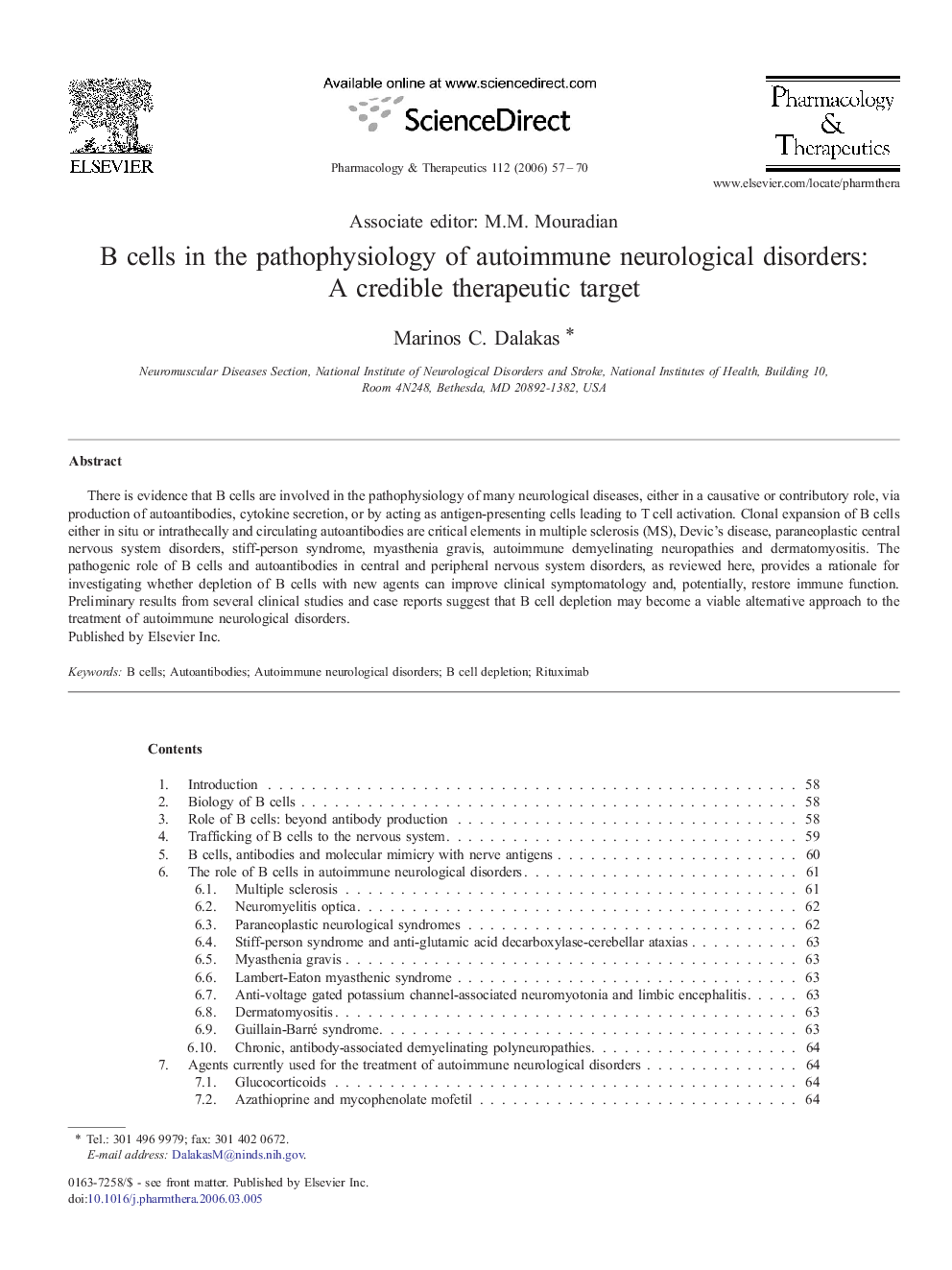| Article ID | Journal | Published Year | Pages | File Type |
|---|---|---|---|---|
| 2564254 | Pharmacology & Therapeutics | 2006 | 14 Pages |
There is evidence that B cells are involved in the pathophysiology of many neurological diseases, either in a causative or contributory role, via production of autoantibodies, cytokine secretion, or by acting as antigen-presenting cells leading to T cell activation. Clonal expansion of B cells either in situ or intrathecally and circulating autoantibodies are critical elements in multiple sclerosis (MS), Devic's disease, paraneoplastic central nervous system disorders, stiff-person syndrome, myasthenia gravis, autoimmune demyelinating neuropathies and dermatomyositis. The pathogenic role of B cells and autoantibodies in central and peripheral nervous system disorders, as reviewed here, provides a rationale for investigating whether depletion of B cells with new agents can improve clinical symptomatology and, potentially, restore immune function. Preliminary results from several clinical studies and case reports suggest that B cell depletion may become a viable alternative approach to the treatment of autoimmune neurological disorders.
